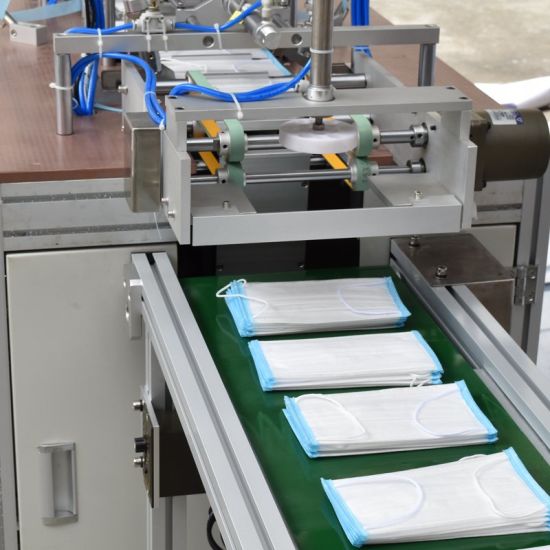Face masks to fight CoronaVirus – Type of masks, their use and entire manufacturing process
Labh Group is a global leader in providing turn-key solutions for face mask manufacturing. We provide end to end solutions to set-up facemask production unit.
First, let us understand what exactly is a face mask and how they are made.
We will cover the following points in this article:
1. What is the novel coronavirus
2. Different types of face masks available
3. Manufacturing surgical face masks
4. Manufacturing N95 face masks
Novel Coronavirus: An overview
A novel coronavirus emerged in China in late 2019, and since then, it has rapidly spread throughout the world. The WHO has declared the novel coronavirus or SARS-CoV-2 a pandemic. The disease that it causes is called COVID-19.
COVID-19 is a respiratory disease that causes difficulty in breathing, pneumonia-like symptoms and even respiratory failure. An infected person may also experience coughing and sneezing. Respiratory fluids are dispersed into the air when a person coughs or sneezes. This is the primary mode of virus transmission.
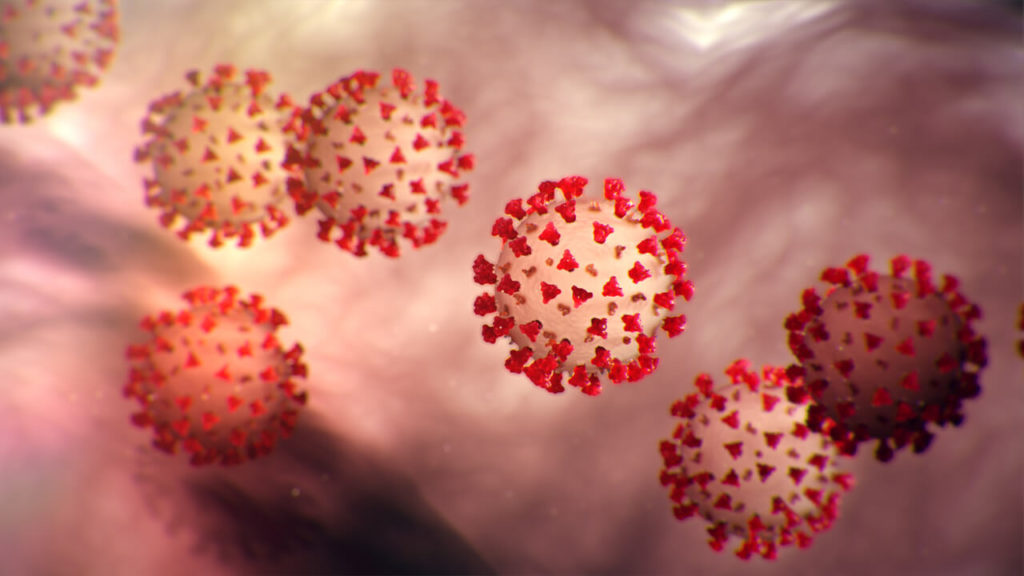
You may have heard a lot about using face masks to prevent the spread of infection. Many nations have even made it mandatory to wear face masks in public places. Here we will discuss the different types of face masks and their effectiveness in controlling the spread of the novel coronavirus.
Types of facemasks and its effectiveness against the spread of novel coronavirus
Homemade cloth face mask
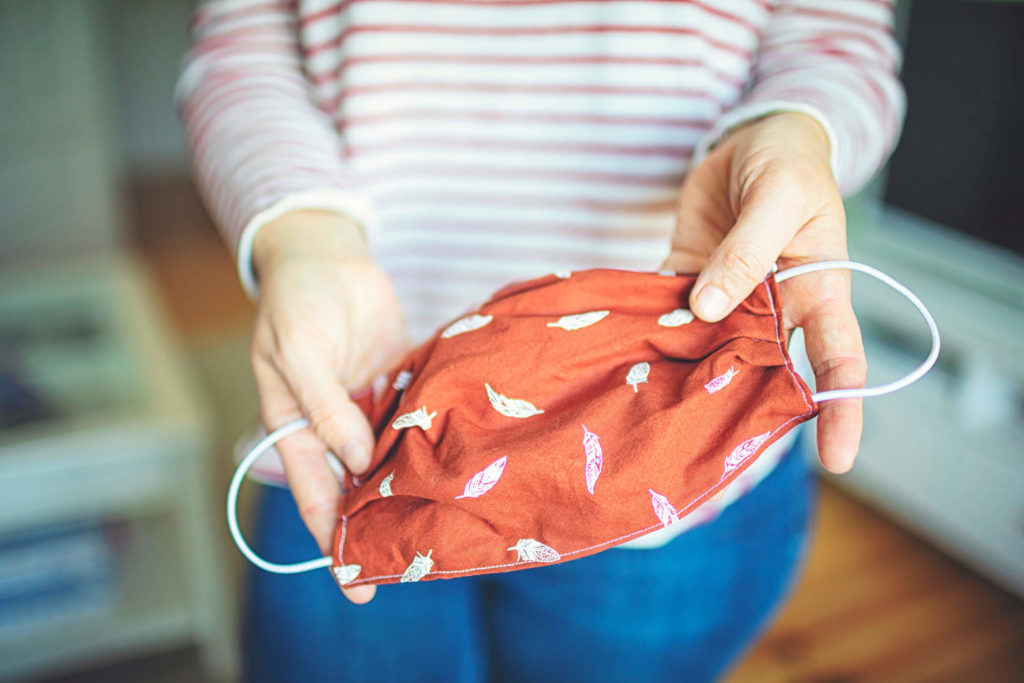
Homemade cloth face masks are reusable masks made of common textiles such as cotton or polyester. These masks are not subject to regulation and there is very little research or guidance on their effectiveness as a protective measure against infectious disease transmission or particulate air pollution.
These masks are recommended for day to day use in public places where it is difficult to maintain a 6-foot distance from others. Especially in areas of significant community-based transmission, such as grocery stores and pharmacies.
Benefits of using homemade masks include:
- Cloth face masks can be made at home from everyday materials, so there’s an unlimited supply.
- They may lower the risk of people without symptoms transmitting the virus through speaking, coughing, or sneezing.
- They’re better than not using any mask and offer some protection, especially where social distancing is hard to maintain.
Surgical face masks
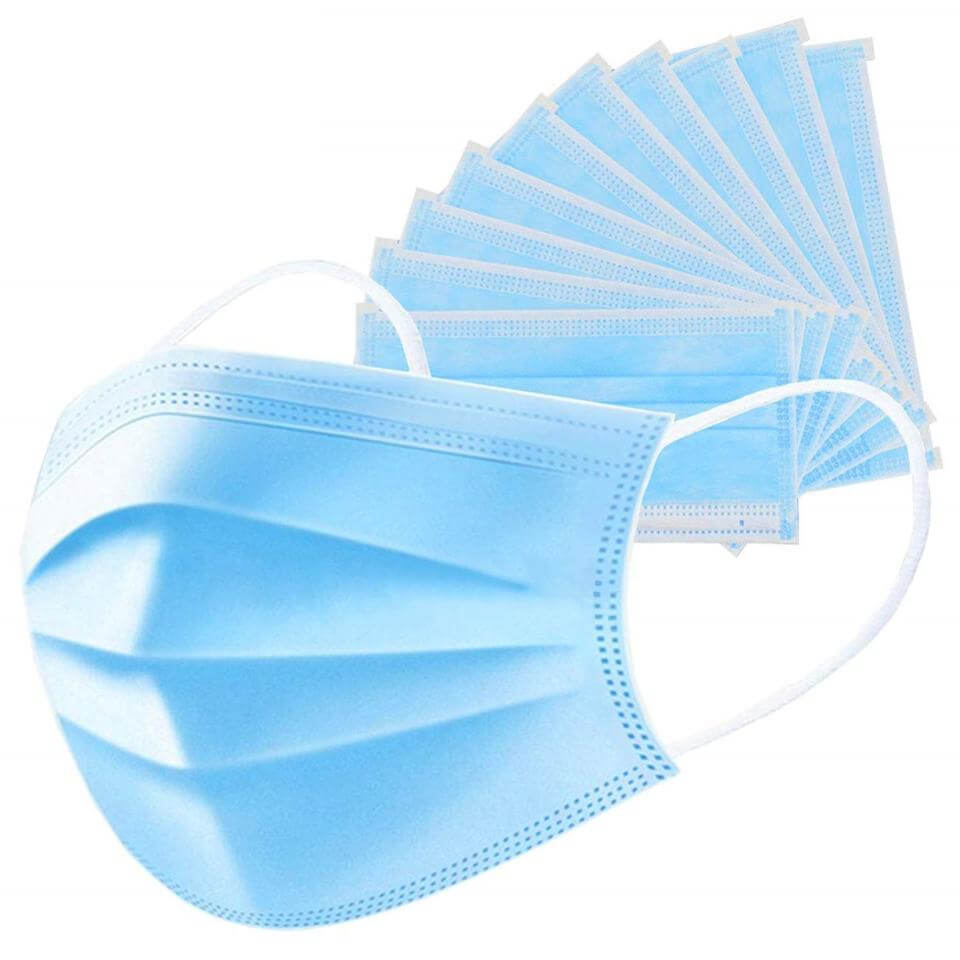
Surgical masks are disposable, loose-fitting face masks that cover your nose, mouth, and chin. It creates a physical barrier between the mouth and nose of the wearer and potential contaminants in the immediate environment.
They’re typically used to:
- Protect the wearer from sprays, splashes, and large-particle droplets
- Prevent the spread of potentially infectious respiratory secretions from the wearer to others
Surgical masks can vary in design, but the mask itself is often flat and rectangular with pleats or folds. The top of the mask contains a metal strip that will form on your nose.
Elastic bands or long, straight ties help hold a surgical mask in place while you’re wearing it. These can either be looped behind your ears or tied behind your head.
A surgical mask, by design, does not filter or block tiny particles in the air that may be transmitted by coughs, sneezes, or specific medical procedures. Surgical masks also do not provide complete protection from germs and other contaminants because of the loose fit between the surface of the face mask and the face.
These masks are not designed to protect the wearer from inhaling airborne bacteria or virus particles and are less effective than N95 respirators, which are designed for this purpose.
Manufacturing surgical face masks
Surgical face masks are made with non-woven fabric, which has better bacteria filtration and air permeability while remaining less slippery than a woven cloth.
They are made up of a multi-layered structure, generally by covering a layer of textile with non-woven bonded fabric on both sides. Non-wovens, which are cheaper to make and cleaner thanks to their disposable nature, are made with three or four layers.
These disposable masks are often made with two filter layers effective at filtering out particles such as bacteria above 1 micron. The filtration level of a mask, however, depends on the fiber, the way it’s manufactured, the web’s structure, and the fiber’s cross-sectional shape.
The masks are made on a machine line that assembles the non-wovens from bobbins, ultrasonically welds the layers together, and stamps the masks with nose strips, ear loops, and other pieces.
Completed masks are then sterilized before being sent out of the factory.
N95 respirator masks
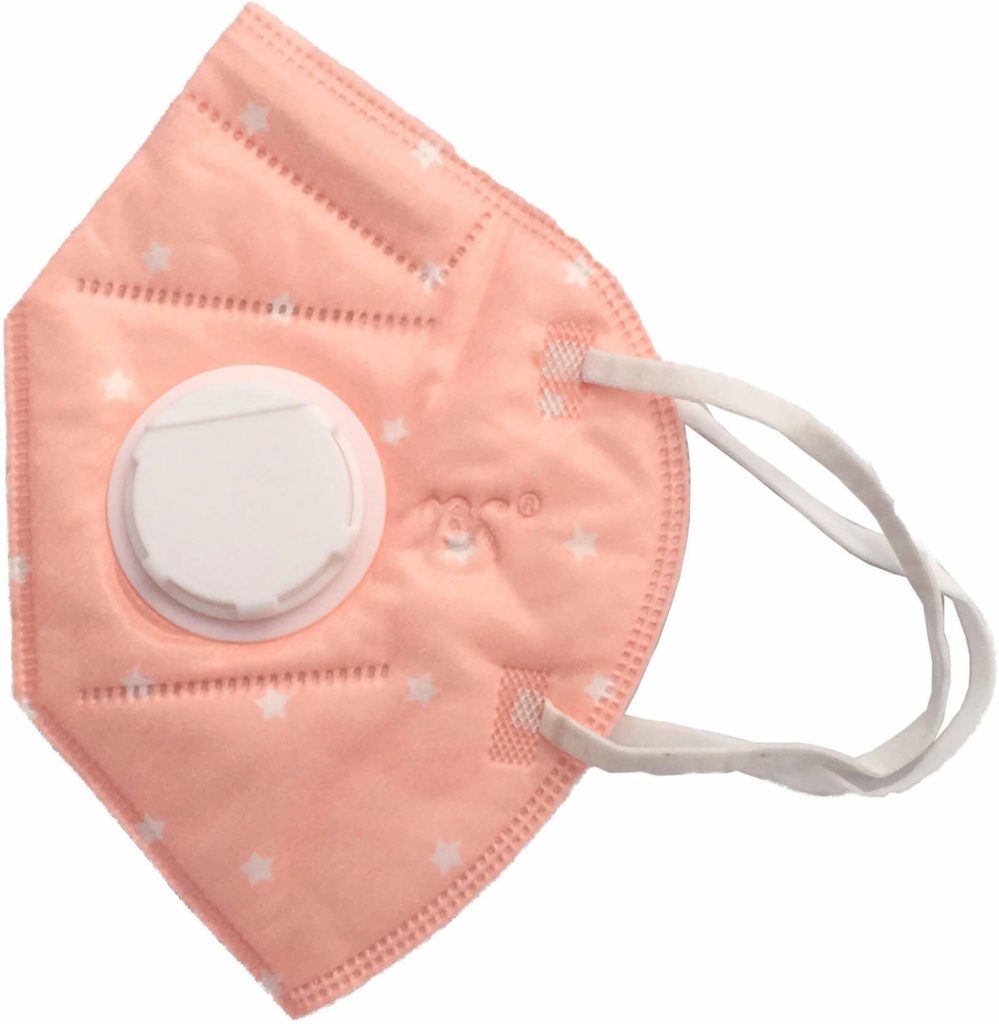
An N95 respirator is a more tight-fitting face mask. In addition to splashes, sprays, and large droplets, this respirator can also filter out 95 percent of microscopic particles. This includes viruses and bacteria.
The respirator itself is generally circular or oval and is designed to form a tight seal to your face. Elastic bands help hold it firmly to your face. Some types may have an attachment called an exhalation valve, which can help with breathing and the build-up of heat and humidity.
N95 respirators aren’t one-size-fits-all. They actually must be fit-tested before use to make sure that a proper seal is formed. If the mask doesn’t seal effectively to your face, you won’t receive the appropriate protection.
After being fit-tested, users of N95 respirators must continue to perform a seal check each time they put one on.
It’s also important to note that a tight seal can’t be achieved in some groups. These include children and people with facial hair.
Manufacturing N95 respirator face masks
A medical N95 respirator consists of multiple layers of non-woven fabric, often made from polypropylene. The two outer protective layers of fabric, covering the inside and outside of the mask, are created using spun bonding. The two outer layers of the respirator, between 20 and 50 g/m2 in density, act as protection against the outside environment as well as a barrier to anything in the wearer’s exhalations. Once the layers are joined, a round shape is cut and a respiratory valve is added to finish N95 face mask.
What kind of face mask is the most effective to fight coronavirus?
It can be seen that N95 face masks are the most effective type of masks to protect against the virus from entering our respiratory systems. It can help protect us from germs by filtering out at least 95% of small airborne particles. Hence, it is recommended to be used by people who have high exposure to the virus, such as healthcare workers and NGO volunteers.
Surgical masks, on the other hand, can help protect wearers from getting others sick through their spit. It doesn’t protect healthy people from acquiring an illness, and a loose fit leaves room for error. They are a good alternative to homemade masks in offering better fitting and protection.
Homemade masks are recommended for everyone for use in public places like grocery stores and medical shops. Homemade masks can be sewn, cut, or fashioned from a bandana and coffee filter.The masks should be washed routinely. These masks are not highly recommended as a loose-fitting mask will be more harmful and prone to infection.
How can Labh Group help you?
Labh Group is a leading, global corporate offering next-generation turn-key solution for diverse industries. We offer complete end to end solutions and provide complete peace of mind to our customers.
Our scope of offerings include
1. Define – Our team of experts will have a detailed discussion to understand your exact requirements. We carry out a feasibility study so that you can be 100% confident about your product and the market.
2. Design – We will prepare the best solution for you, keeping in mind all your requirements. Starting from project site analysis, structure and architecture to design of machine and management systems.
3. Deliver – Handle complete logistics and ensure you get your goods safely on time. We will also perform Installation of plant and its commissioning to start production at your factory, as well as training of your local team.
4. Upgrade – Keep you updated with the latest technology so you stay ahead, always. We will provide you technological upgrades such as digital transformation and ERP implementation to improve your production output and make it more efficient.
5. Support – Lifetime prompt and efficient support for all your needs to keep your plant running at maximum efficiency 24×7. We provide support through email, call and video. We provide remote IoT support as well.
You can read more about our entire scope of turn-key projects and about all the benefits our customers enjoy.
Going forward
Labh Group is leading the way in developing a face cover that could cover the entire face of a person as eyes and nose are a crucial point of entry for the virus.
In the meantime, we request everyone to stay at home to save yourself and save others. If necessary, always use a face mask before stepping out of your home.
Stay home, stay safe.
Liked this article? Share it on:
Featured insights and blogs

The secret to cultivating operational excellence
A big focus area across industries is continuous improvement. Companies are under extreme pressure to perform but operational complexities hinder from realising intended outcome.

Make your factory smart for higher profitability
The smart factory is the factory of the future. It is one where processes are interconnected, and continuously improving production systems and processes. In simple terms, it is ‘intelligent manufacturing.’
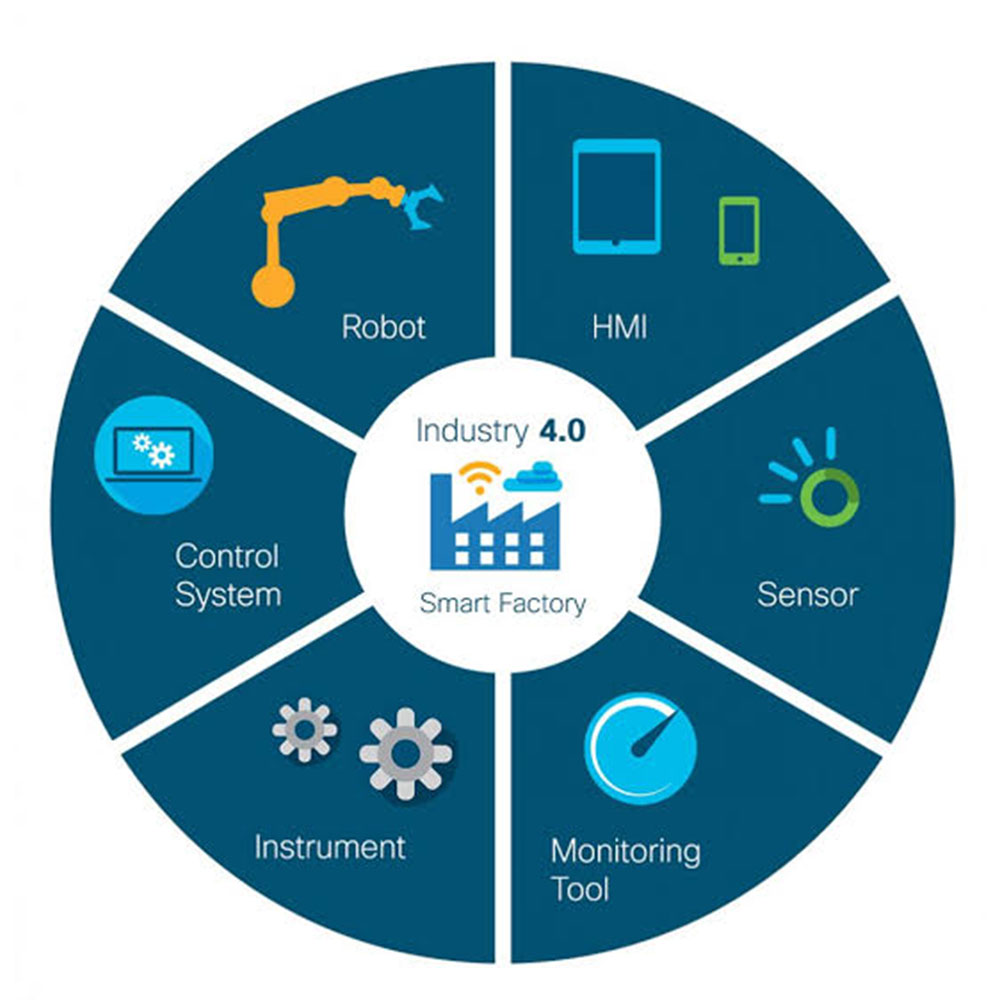
6 key benefits of industry 4.0
Industry 4.0 is the transformation of traditional industrial and manufacturing platforms into automated and interconnected systems capable of continuous autonomous improvement and automation.
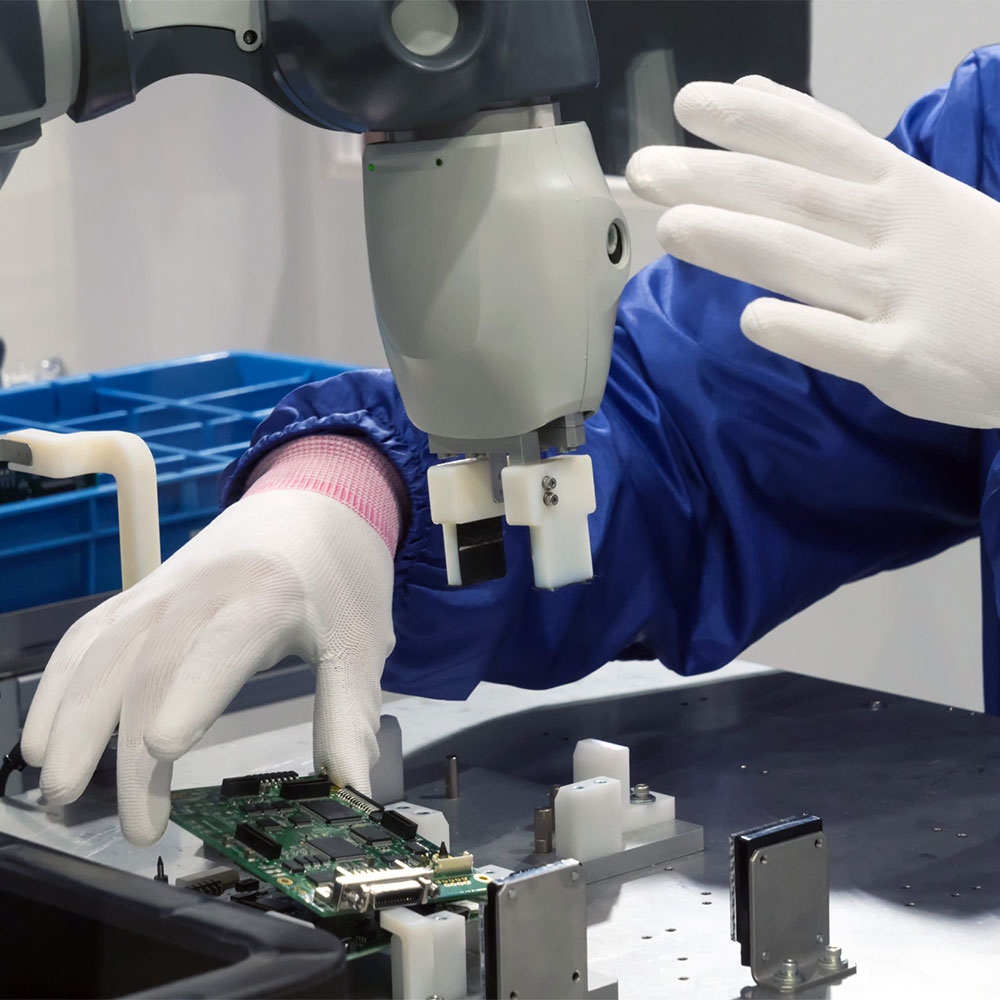
Adopting cobots - Collaborative robots
The use of collaborative robots (cobots), is expected to grow at astonishing rates in the future. They have been a game-changer in due to their ability to work side-by-side with humans.
Our experts are always available to answer all your questions. Feel free to write to us and get your queries answered.
About Labh Group
Labh Group is a leading engineering, technology, consulting and manufacturing conglomerate, working closely with diversified industries spanning across food processing, agriculture, plastics, chemicals, healthcare, packaging and other industries and business sectors offering complete turn-key solutions including advanced engineering, Industry 4.0 solutions, expert technical and management consultancy and Digital Transformation. From the most demanding to the most distant customers across the globe, we empower them for rewriting their future with our depths of knowledge, unique ideas, technical expertise, creative solutions and enduring results, all at the most optimal costs, right at their doorsteps!
